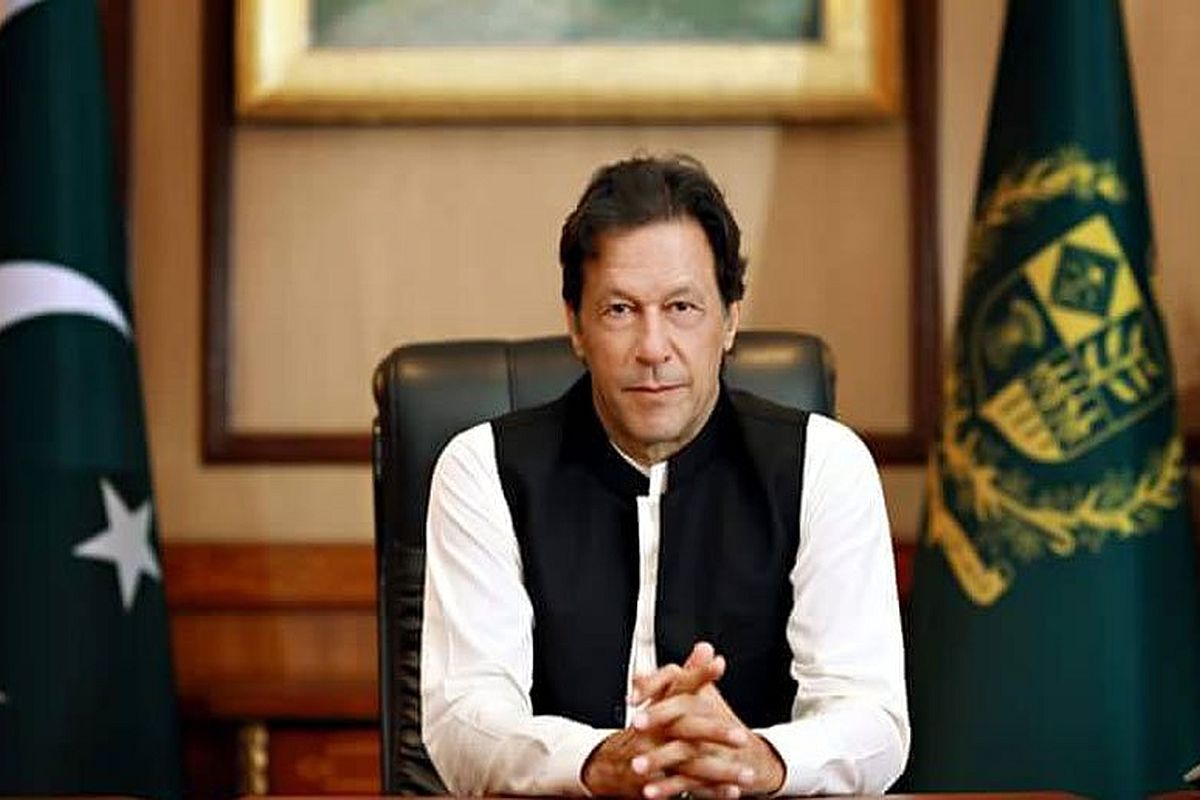Cong defeated ‘Bangladesh’ in semis, will rout ‘Pakistan’ in finals: Reddy
Reddy was addressing a meeting of the Congress social media team and took digs at both the BJP and the BRS.
The final nail in the coffin may come from PPP leader Bilawal Bhutto-Zardari’s endorsement of a suggestion by his alliance partner to enforce a ban on the PTI. Mr. Khan has so far drawn on the support of Supreme Court Chief Justice Umar Ata Bandial and the country’s President

Pakistan Prime Minister Imran Khan (Twitter photo))
The noose is clearly tightening around former Pakistan Prime Minister Imran Khan. Leaders of his Pakistan Tehreek-e-Insaaf (PTI), including prominent ones who were once the faces of the party, have left him, and workers are being rounded up in the hundreds across the country. Mr. Khan has been placed on a No-Fly list by the authorities, which means that exile in salubrious shores may not be on the cards, at least not yet. Permission has been granted to try PTI members involved in the 9 May assault on an Army installation under draconian military laws, while those in the military establishment who were sympathetic to him are being quietly dealt with.
The final nail in the coffin may come from PPP leader Bilawal Bhutto-Zardari’s endorsement of a suggestion by his alliance partner to enforce a ban on the PTI. Mr. Khan has so far drawn on the support of Supreme Court Chief Justice Umar Ata Bandial and the country’s President, Dr. Arif Alvi, but their terms in office will end within days of each other in September. Given the panic in the PTI ranks, it is possible that even they might view Mr. Khan’s approach with a degree of circumspection. Clearly, Mr. Khan’s elaborate plan to become Prime Minister by forcing early elections to the National Assembly is coming unstuck, and it is entirely possible that by the time polls are announced, his party may either be rendered ineligible to contest, or be so emasculated that it will not be able to secure significant gains.
This leaves two questions hanging in the air. What will happen to the hopes and aspirations of thousands of Pakistanis who joined the PTI after seeing virtues in Mr. Khan’s prescription for the country, one that foresaw a role for them in a governance model that was promised to be inclusive? While the politicians among them will find sanctuary in other parties, what will happen to many nameless supporters who trudged with him and offered themselves as cannon-fodder at his command? Those who did not play a role in the events of 9 May have the choice of sticking on with a leader under siege, or retreating from the political engagement with their hopes dashed. Neither situation is a happy one, for while the military establishment and the civilian government arrayed against Mr. Khan will have succeeded in snuffing out his brand of politics, the presence of a sullen citizenry can only be debilitating for a country, one reeling from economic setbacks. The other question that will be left dangling concerns the future of politics in Pakistan.
Advertisement
While he did so for his own reasons, Mr. Khan had in the latest phase of his career offered the hope of breaking the stranglehold of the military on democratic institutions. The two other main parties have reached an accommodation with the military to put him down. And while they may not have done so happily, it seems they and Pakistan must reconcile to governance under the shadow of the gun.
Advertisement